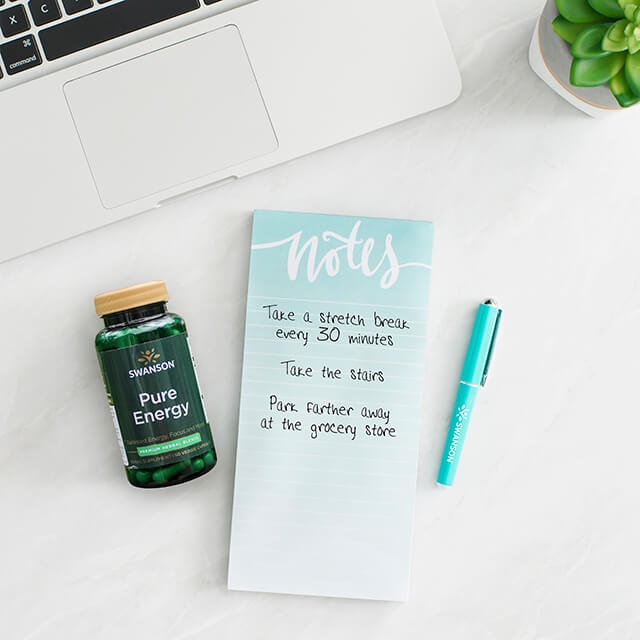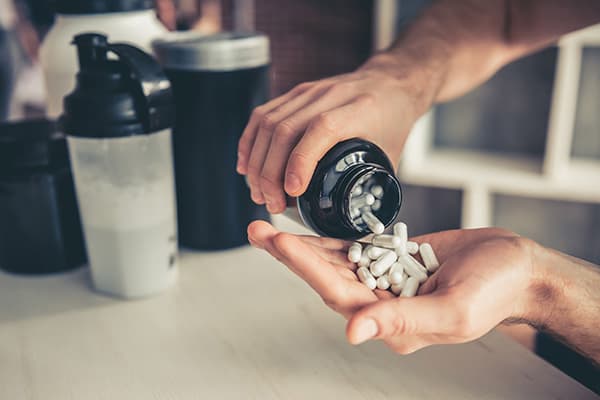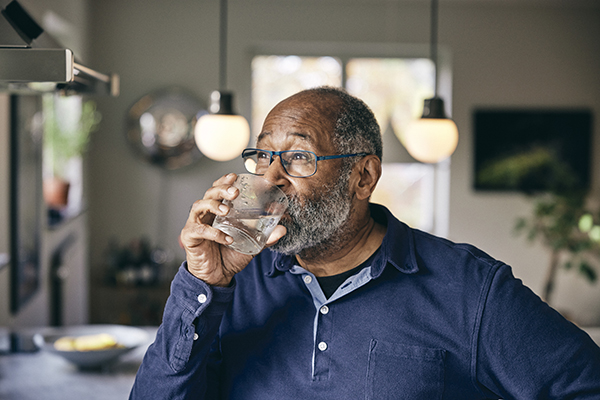Which Workout Supplements Should I Take?
It’s no secret that physical activity can be taxing on the body. Fitness routines are one of the best ways to maintain a healthy lifestyle, so it makes sense to want to get as much out of your workout routines as possible.
However, the world of workout supplements is vast and there are plenty of options that provide very little benefit or are loaded with sugar. If you’re looking for clear answers for what supplements to take when it comes to your exercise routine, our experts have some science-backed picks for you.
Why Take Workout Supplements?
There can be multiple reasons for taking workout supplements—it all depends on your fitness goals. Some people take workout supplements to help build and maintain muscle, while others may be looking for more energy throughout their workouts. Recovery routines are also important for helping the body rest and recuperate, and nutrients can play a role there too.
But in a nutshell, most workout supplements are taken before, during or after exercise to help streamline results by optimizing the benefits from your hard work. While there is nothing wrong with excluding supplements from your daily physical activities, there is something to be said about getting more bang for your buck when you include these vitamins in your routine.
Studies have suggested that some workout supplements like caffeine and creatine may work better than others, so keep an eye out for ingredients that are backed by science to help you on your fitness journey.
Best Reasons to Take Workout Supplements:
- Muscle gains and maintenance
- Sustained energy
- Muscle recovery
- Weight loss and management
Types of Workout Supplements
Not all workout supplements are created the same. It’s important to identify your fitness goals so that supplementation meets your needs and can help propel you in the right direction. You can also combine supplements for a routine—for example, if you’re looking to bulk up you can reach for protein and creatine to help put on muscle and keep it.
Muscle Growth and Maintenance Supplements
- Protein: One of the basic forms of fitness supplementation—protein helps support gains in muscle over time1
- Creatine: Can enhance lean mass and maximum strength during workouts2
Supplements for Sustained Energy
- Caffeine: Stimulant that may reduce perception of exertion during exercise and improve endurance for longer workouts2
- L-citrulline: Improves oxygen uptake as well as enhances endurance and exercise performance3
Supplements for Muscle Recovery
- BCAAs: Studies suggest that taking BCAAs before and after exercise can help decrease exercise-induced muscle fatigue and promote muscle-protein synthesis4
- Creatine: May enhance post-workout recovery and injury prevention5
Supplements for Weight Loss Management
- L-carnitine: Helps convert fat into energy to aid with weight loss6
- NMN: More of an up-and-coming supplement that may improve exercise metabolism and support the body’s ability to turn food into energy—studies are still underway
When to Take Workout Supplements
The time you take your workout supplements is important for the best results. Pre-workout supplements will have very different effects from post-workout supplements, so be sure to take them at the appropriate time in order to maximize your routine.
Pre-Workout
During Workout
- BCAAs (Can also be taken before/after)
- Water or electrolytes to stay hydrated
Post-Workout
Workout Supplements for Men Vs Women
While both men and women can take any of the supplements we’ve touched on, there are also gender-focused supplements that can help you zero in on your goals as well. For men, testosterone supporters may be something that would be of interest, whereas women may turn to collagen for some extra bone and joint support.
We hope these science-backed options provide some clarity when it comes to finding workout supplements that fit your needs.
Always serving our customers,
Your friends at Swanson
*These statements have not been evaluated by the Food and Drug Administration. These products are not intended to diagnose, treat, cure, or prevent any disease.
Sources
1. The Effects of Protein Supplements . Sports Med. Read source
2. Evidence-Based Supplements for the Enhancement of Athletic Performance. International Journal of Sport Nutrition and Exercise Metabolism. Read source
3. L-Citrulline Supplementation. Journal of Applied Physiology. Read source.
4. Exercise Promotes BCAA Catabolism, The Journal of Nutrition. Read source
5. International Society of Sports Nutrition Position. Journal of the International Society of Sports Nutrition. Read source
6. The Effect of L-carnitine on Weight Loss. Wiley Online Library. Read source.




